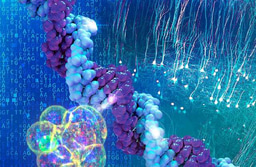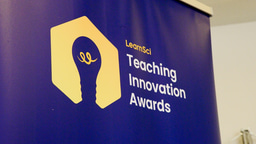Bringing undergraduates into the peer review community using preprints

A collaborative project across institutions in the U.S. is developing a curriculum for undergraduate biology students about the process of manuscript peer review, and including them in the process. Gary McDowell describes how the program is improving critical literacy, understanding of the scientific process, and students’ own sense of belonging in science.
Students learning about science are being exposed to more and more opportunities to carry out authentic experimental laboratory research in addition to learning theories and established facts about natural processes. Not only does exposure to lab experiments give students an appreciation of how scientists carry out their work; it’s been shown that actively engaging in processes that make up the day-to-day lives of professional scientists helps students identify with those scientists. Therefore, whether we think about retention of students in STEM professions, or just having a more scientifically-literate and -supportive society, the benefits of engaging students in authentic research experiences are leading to increased opportunities for students to participate in summer research programs, or in Course-based Undergraduate Research Experiences (CURES).
There is another part of the scientific process that is receiving less attention, but is just as important for students to learn about: how scientists communicate and disseminate the results of their experiments. One of the most fundamental justifications for trusting the scientific research process is the process of peer review, a key part of the transformation of initial findings to established knowledge. However, education and training on peer review receives less attention than it deserves - including the lack of training received by most current peer reviewers - and so our project is working to establish an evidence-based modular curriculum to provide undergraduate biology students with authentic experiences and education in peer review.
Early start
Education about peer review for undergraduate students may, at first, sound like a puzzling premise. Most undergraduate students are not going to engage in peer review of articles for academic journals in their future careers – so why train them in it? But rather than focus on the professional development aspect of peer review training, we are thinking about the opportunities that education about, and engagement in, the process of peer review can provide.
Providing education about the peer review process can give students an understanding of how science works, and how knowledge is generated, in the same way as educating students about experimental methodologies. This could help us move toward a more scientifically-literate population that understands the peer review process and why scientists use it. But we also want to provide education about how to do peer review, to develop close reading and critical literacy skills. The ability to engage with scientific content and make evaluations of what is being described is a critical skill to develop, and peer review provides a perfect structure for doing this.
In addition, we have the ability to let students look at real works in progress, by engaging them in peer review of preprints. The preprint revolution currently underway has allowed biology students free access to work under development in their topics of study, that they may have the potential to provide helpful feedback on, rather than engaging with processes at journals, where the work is either inaccessible or has already been “finished”. Engaging with work as it is being developed allows students to see the shape of science in development, and to engage with practicing scientists and discuss their work with them.
A sense of belonging
As part of the development of the peer review curriculum, we have been evaluating students’ science literacy, science identity and sense of belonging to various communities (i.e., their classroom, the science community, and the community of peer reviewers) as they engage with the course. We have some preliminary results, published on bioRxiv and accepted as part of the National Association for Research in Science Teaching Annual Conference in 2023, looking at the impact of the full curriculum, and a specific module (where students write individual, and then group, peer review reports of a manuscript).
Through evaluation of students’ peer review reports throughout the course using various metrics (including a rubric that students designed themselves), I found a marked improvement in the quality of the review reports. We noticed a key leap in improvement was at the point where students came together and discussed their individual reports, and then wrote a group report. Interestingly, this appeared to have a subsequent effect on the class of students who then went on to write an individual report on a preprint of their own choosing, suggesting that the opportunity to compare and contrast – and discuss – their peer’s reviews was important. But also, in a thematic analysis of student writings in reflection journals led by Colorado State University graduate student Josie Otto, we found that coming together as a group and sharing and discussing their reports in a safe environment – their classroom – appeared to bolster their science literacy and science identity, such as they articulated a greater sense of belonging in the community of peer reviewers more widely.
Our work on this project is ongoing, evaluating implementation at other institutional sites and continuing to think about how we evaluate peer review reports, especially with a view to grading. We are also working on developing a formative learning assessment tool, which evaluates student understanding of the process of peer review at the start and end of the course. Interestingly, students can initially articulate a broad understanding of what peer review is and why we do it, but have no idea about the mechanics or intricacies of the process until they participate in the course.
However we are excited by the implications of aspects of the curriculum, and especially by the suggestion that peer review exercises can provide a straight-forward opportunity for students to engage with the literature and simultaneously feel a great sense of identity with scientists, a sense of belonging in science, and an understanding of why scientists do what they do.
Photo by Mira Kireeva on Unsplash





Join the FEBS Network today
Joining the FEBS Network’s molecular life sciences community enables you to access special content on the site, present your profile, 'follow' contributors, 'comment' on and 'like' content, post your own content, and set up a tailored email digest for updates.